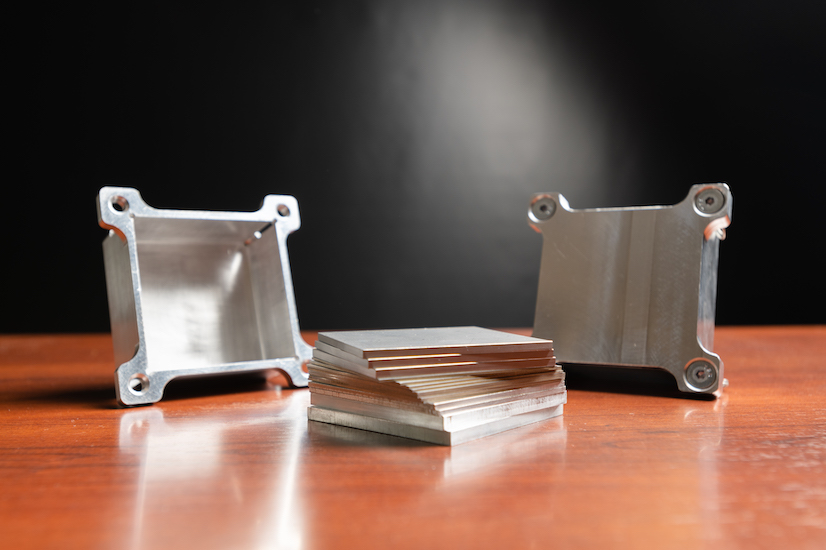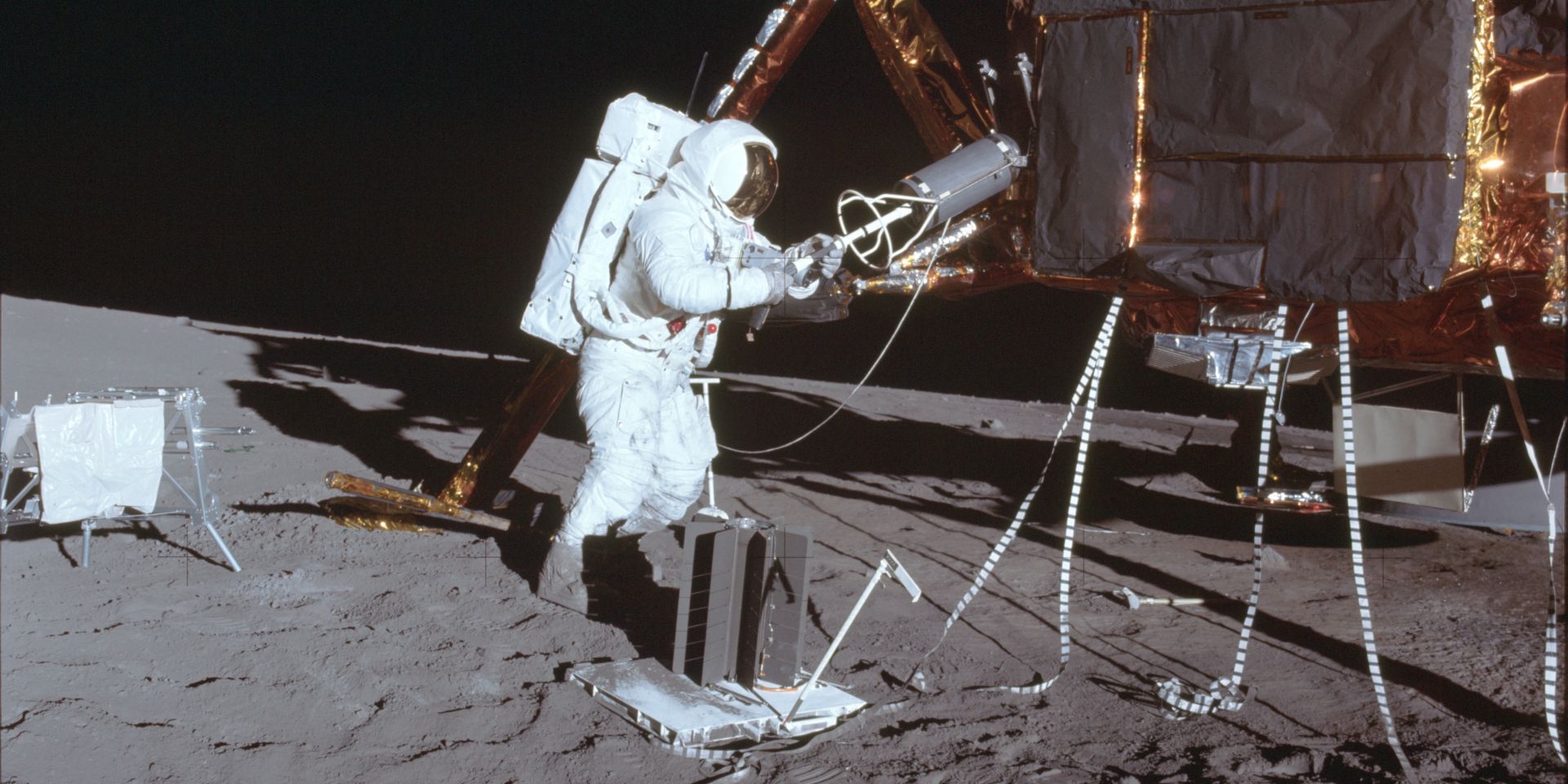Understanding how several different metals—such as the contents of PNNL’s space-bound cube—react to radiation in space will help scientists understand the potential impact of radiation on space travelers. (Photo: Eddie Pablo/PNNL)
When a SpaceX rocket lifted off from Kennedy Space Center on September 10 (see video here), sending a crewed commercial mission into low Earth orbit, an experiment designed by Pacific Northwest National Laboratory was onboard. Several high-purity metal samples will orbit Earth and absorb cosmic radiation for five days—including that from the Van Allen radiation belt—to help the lab answer questions about the radiation environment for manned space missions, according to a news release from PNNL.
April 26, 2024, 3:03PMNuclear NewsAlex Gilbert, Harsh S. Desai, and Jake Matthews Astronaut Alan Bean prepares fueling of a Pu-238 radioisotope thermoelectric generator during the Apollo 12 mission to the lunar surface. (Photo: NASA)
In early 2006, a start-up company launched a small rocket from a tiny island in the Pacific. It exploded, showering the island with debris. A year later, a second launch attempt sent a rocket to space but failed to make orbit, burning up in the atmosphere. Another year brought a third attempt—and a third failure. The following month, in September 2008, the company used the last of its funds to launch a fourth rocket. It reached orbit, making history as the first privately funded liquid-fueled rocket to do so.




